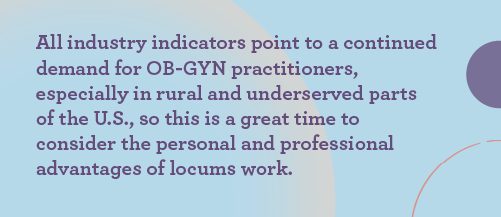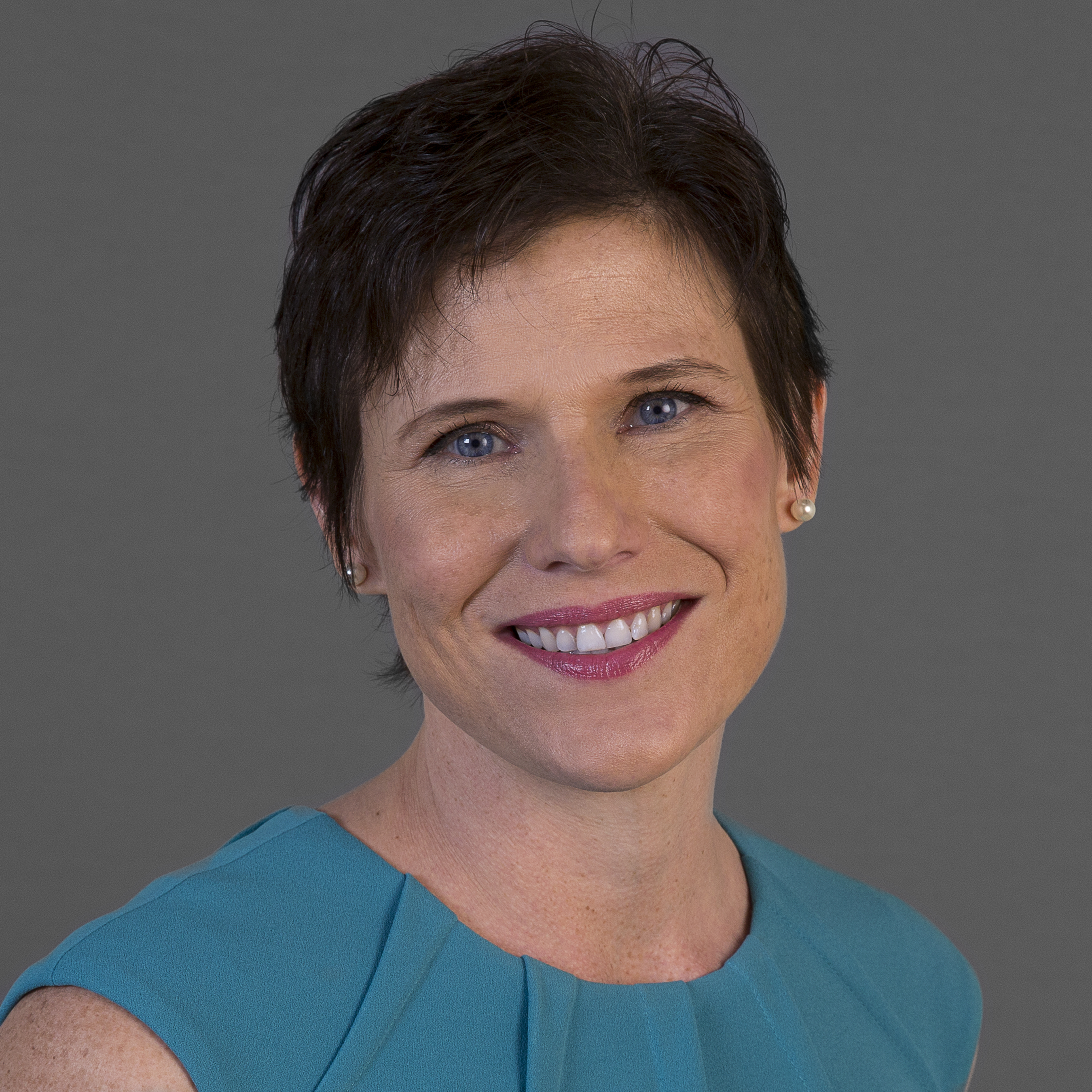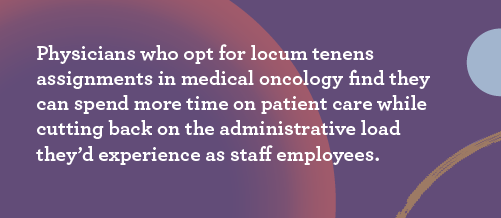Top 12 in-demand specialties for locum tenens for 2025
August 7, 2025
Thinking about locum tenens? Most physician specialties qualify, but some are in especially high demand—giving you more choice, higher rates, and the freedom to work where you want. Take a look at the top 12 in-demand specialties for 2025.
1. Surgical specialties
When it comes to medical doctor jobs, demand is trending up again this year for surgical specialties such as general surgery, trauma surgery, orthopedic surgery, as well as surgical subspecialties like cardiovascular, neurosurgery, and urology. Using National Resident Matching data as a benchmark, the American College of Surgeons reports that surgical specialties are especially competitive in 2025, beating 2024’s record-matching numbers by over 4%.

Surgical specialty practitioners are often drawn to the flexibility of locum tenens as they move through various stages in their careers and personal lives. Experienced physicians who have opted to take locums assignments full time find that they can maximize their incomes and move their work around other life priorities. Early career practitioners enjoy the travel and variety that locums provides. Those in later career stages like the ability to concentrate on their specialty and minimize the administrative side of their jobs.
2. Emergency medicine
In today’s corporate medical environment, emergency medicine physicians may be under pressure to move fast and push for volume while working extremely long hours. This can result in a lot of physical and mental strain, eventually leading to burnout. Locum tenens can provide an opportunity to regain control and restore work-life balance. Dr. Rip Patel advises his colleagues to get clear on what kind of life they want when considering the flexibility and lifestyle advantages of locums.

You’ve got to do what’s important to you. This is your life. You’ve worked hard to get where you are and should be happy.
For many ER docs, that means having options when it comes to hours, compensation, and location—options that may not be available when you’re locked into a permanent staff position. While compensation is generally trending up for emergency medicine physicians according to publicly available labor statistics, locums assignments may be more lucrative in underserved rural areas that offer pay incentives and other contract sweeteners for hard-to-fill emergency room positions.
3. Anesthesiology
Patient factors like an aging population and higher demand for specific surgical procedures helped to push demand for anesthesiologists into the top five again on this year’s list. Supporting data on the early-career end comes from Medscape’s 2025 Residency “Match Day” report which revealed record acceptance numbers for this year’s applicant pool of anesthesiologists.
We’re seeing across many specialties, including anesthesiology, that although compensation can be relatively high in larger coastal centers, the cost of living can often offset the gains. Both pay and the number of opportunities tend to be especially high in rural or otherwise underserved areas with greater percentages of open positions. These facilities may offer rate incentives and other kinds of contract perks like housing stipends for locum practitioners.
4. OB-GYN
All industry indicators point to a continued demand for OB-GYN practitioners, especially in rural and underserved parts of the U.S., so this is a great time to consider the personal and professional advantages of locums work. Dr. Shyrlena Bogard says, “Most of the facilities are very welcoming. They're happy to have locums, and they're very supportive. They want to make sure that you are comfortable. For onboarding and offboarding, I sign in as though I were part of the regular staff. One of the things I always say is, it doesn't matter where you are, obstetrics is the same."

The flexibility of locum tenens work is one of the reasons Dr. Bogard was drawn to the locum tenens lifestyle. “It gives me the flexibility to work two weeks straight and take two weeks off, or work a month and take three weeks to get myself back together. So I don’t burn out and can continue to enjoy doing what I love.” Dr. Bogard has been taking repeat assignments at one of her frequent locums facilities for years, and she loves the patient relationships she’s been able to develop.
5. Family practice
Family medicine continues to be a top specialty for locum tenens. Not only is demand for this specialty growing at an average of 2% to 4% per year, but the Association of American Medical Colleges (AAMC) also projected a shortage of up to 48,000 family medicine physicians by 2034. That gap represents a significant opportunity for locum tenens family medicine physicians ready to enjoy the flexible lifestyle that locum tenens offers.
It's interesting to explore the range of advantages that locums can offer any practitioner, whether in the early or late stages of their careers. For Dr. Arthi Chawla, working locums was the perfect way to explore career options in depth before moving into a permanent staff position.

Locums is a great way to try out different areas of the country and work settings to see what’s available, what you like, what you don’t like, and gain more clinical experience
“It puts you in a position to make a more informed decision when it’s time to consider a permanent job,” Dr. Chawla says.
6. Gastroenterology
According to a report by Becker’s ASC Review, record numbers of GI doctors are expected to leave the field due to burnout, early retirement, and broad changes in the healthcare industry. The resulting shortage creates opportunities for gastroenterologists interested in the flexibility and career advantages of locum tenens assignments.
Working full-time locums allows Dr. Robert Brenner to spend less time on administration and more time seeing patients. He says it also allows him to fit a full workload around the needs of his family without sacrificing pay. “I knew locums was there for a long time, but I never took a good look at it." Dr. Brenner maximizes the benefits of locums by booking as much work as possible for 20 days a month and taking 10 days off. “When I’m home, I’m free.”

It’s one of those things that I wish I had done five years ago.
7. Radiology
The Journal of the American College of Radiology (JACR) projects that the demand for radiologists could increase by 25 to 40% by 2055, depending on the effects of residency and post-COVID-19 attrition factors. Facilities are struggling to retain radiologists for a complex mix of reasons—foremost of which is burnout—and job openings continue to outpace the number of graduating trainees by several multiples.

What this means for radiologists is that locum tenens needs will remain strong in many U.S. markets for the foreseeable future. Demand in this specialty will only go up as the need for imaging increases, along with continuously advancing medical technology. This is ideal for providers who want more flexibility in their schedules or want to reduce the administrative demands of their work.
8. Internal Medicine
Medscape’s annual residency “Match Day” report reveals an especially bright outlook for those starting their careers in internal medicine. Last year’s O-NET forecast projected an average of 3-5% job growth for internal medicine practitioners through 2033.
What this means for those considering locum tenens as a career option is that there will be reliably strong demand for this specialty and numerous high-paying assignments to choose from. Although pay rates will look high on paper for major coastal centers, keep in mind that there may be valuable contract incentives in parts of the country with a lower overall cost of living.
Dr. Paymon Kayhani works locums full-time and says he doesn’t miss having a staff job. His flexible schedule allows him to take time off when he needs it, and the high demand for locums means he never feels at a loss for work. “I’ve been in that capacity now for three years with no interruptions and no loss of contracts,” he says. “I realized that there was an immense amount of locums work out there, and I could have the same consistency I had as a permanent hospitalist, just working locums.”
Dr. Tammy Allen agrees. She frequently takes time off between assignments to travel for leisure and enjoys knowing she’ll have another assignment available when she’s ready to work again.

If you’re willing to travel, you have security in your job as a locum because we are needed all over.
9. Hospitalist
According to several studies aggregated by Medscape, the demand for hospitalists has been rising steadily as their role continues to evolve. The findings suggest that one reason for the rising demand may be improved patient satisfaction scores and decreased lengths of stay associated with hospitalist care.
Why is this good news for hospitalists exploring locums opportunities? As a hospitalist and Medical Director of Patient Experience for Nebraska Medicine, Omaha, Jennifer Colella, MD, points out:
As healthcare organizations continue to face challenges related to patient volume, complexity, and cost, the hospitalist role will remain indispensable.
10. Psychiatry
Greater public awareness and declining social stigma around mental health are driving increasing demand for psychiatric services. O-NET data projects higher-than-average growth in this field at a rate of 6-8% through 2033. A 2023 study by The Commonwealth Fund reports that 160 million Americans live in a psychiatry shortage area, and this deficiency is only expected to grow. These and other compelling indicators place psychiatry among the top in-demand specialties for locum tenens.
Psychiatrist Dr. Heather Cumbo finds locum tenens work especially fulfilling because it allows her to provide psychiatric care to those who might not otherwise have access. “Most of the places where I go are located in rural communities. So, it’s not only gratifying that I have the independence I like, but I’m also taking care of people who otherwise would not have any mental healthcare at all.”

Locums allows me to block off my vacation time when I want to take it, and then I work locums around my vacations.
Dr. Cumbo says she appreciates the freedom that locums affords her to schedule time off. “I have colleagues who are full-time staff physicians, and because of the patient care demand, they frequently aren’t able to take vacations."
11. Cardiology
According to the U.S. Bureau of Labor Statistics, the need for cardiologists is expected to increase through at least 2033. Several factors drive this growth, including increasing numbers of aging adults needing complex healthcare, a growing share of cardiologists reaching retirement age, and fewer new physicians specializing in cardiology.
It’s important to note that not all older cardiologists are ready to hang up the white coat just yet. Cardiologist Dr. Michael Higginbotham says that although he had reached traditional retirement age, he wasn’t ready to retire yet. “I had a survivable retirement account, but I knew I didn’t want to stop working completely, and I wanted to do part-time work. So, about a year before retirement, I started locums part-time and stopped full-time work.”

One of the reasons I like working locums is the feeling that I’m doing something I’m good at and useful at.
Dr. Melissa Walton-Shirley felt the same way. “I just didn’t want to retire. So I decided to pursue locum tenens, and it’s the happiest I’ve been in a long, long time.” The thing about locums is that whether you’re a late-career or early career practitioner, you can adapt locums work to flex around your life priorities.
12. Medical oncology
The U.S. oncology workforce is facing a critical shortage driven by an aging population, rising cancer cases, and increasing physician burnout—now affecting 59% of oncologists. Administrative burdens and early retirements are accelerating the crisis, prompting calls for systemic reforms, team-based care, and expanded rural access. The ASCO researchers found that the oncology workforce is concentrated in a small number of urban counties, and most rural counties in the U.S. have no medical oncologists.
This workforce shortage is driven by a mix of interdependent factors, including lingering COVID-19 impacts, geographic disparities in cancer incidence and recovery rates, regional socio-economic considerations, insurance industry concerns, and the number of practitioners aged 65+ who may be leaving the profession. The administrative burden on medical oncologists from payer pressures can also be a heavy strain and may lead to early burnout.

All these factors add up to increasing demand for locum tenens coverage in this crucial specialty. Physicians who opt for locum tenens assignments in medical oncology find they can spend more time on patient care while cutting back on the administrative load they’d experience as staff employees. Locum physicians can often optimize their hours and earnings while protecting the time they need for work-life balance. Also, locums doesn’t necessarily mean excessive travel. Many locum physicians find steady assignments close to home.
Whether you’ve had some locums experience or are considering it as an option for the first time, some patients and communities need what you have to offer. Many facilities in underserved regions are willing to make it worth your while to try something new and make a difference.
To learn more about locum tenens opportunities in your specialty, give us a call at 800.453.3030 or view all locum tenens job opportunities.